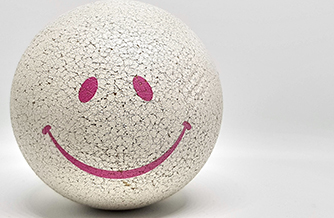- Helpline: Miss Vandana
- Private & Confidential
- +91 9967334000
- +91 9967197766
What is Cognitive Behavioral Therapy?

Effects, Signs and Symptoms of Hashish
December 2, 2020
Sobriety Definition & Its Importance
January 11, 2021

The World is getting advanced day by day. Our lives have become way easier today. We have a lot of facilities to remain in the comfort zone and get things done faster than ever before. But studies have proved that with the growing modernity, a lot of people have started suffering from mental problems, more than physical problems. The emotional well-being of individuals is getting deteriorated.
When there is a problem, there is a solution too. Medical Science has invented a lot of therapies that help individuals combat their mental conflicts. Cognitive Behavioral Therapy is one of them.
History of Cognitive Behavioral Therapy
Back in the 1960s, Cognitive Behavioral Therapy was invented by a popular psychiatrist – Aaron Beck[1]. One day when he was doing psychoanalysis and observed that his patients were having an internal dialogue in their minds. He invented the term automatic thoughts. Beck realized that people aren’t fully aware of these thoughts; however, they can notice and report them. Beck assessed that if individuals start understanding their thoughts, they can easily overcome their difficulties. That’s when Beck called it Cognitive Behavioral Therapy as the therapy gives importance to thinking and applies behavioral techniques to help them overcome.
What is Cognitive Behavioral Therapy?
It is a directive and structured psychological treatment that helps treat a lot of psychological problems like – anxiety, depression, insecurity, drug, and alcohol addiction problems. The therapy identifies the negative and destructive thoughts and focuses on changing the negative thoughts of people. With Cognitive Behavioral Therapy, the thoughts are identified, challenged, and replaced with objective and realistic thoughts.
What is the focus of Cognitive Behavioral Therapy?
The focus of CBT is problem-oriented which emphasizes the present. It aims at concentrating on ‘here and now’ problems whose roots might be originating from the past. The current state of mind of patients is treated through this therapy. It recognizes one’s distortions in thinking, reevaluates it in the context of reality, and then finally a better understanding of the behavioral is developed.
What are the diseases being treated by Cognitive Behavioral Therapy?
Cognitive Behavioral Therapy helps treat the following diseases:
- Panic Disorder
- Depression
- Schizophrenia
- Eating Disorders
- Traumatic disorder
- General Anxiety
- Drug and Alcohol addiction
- Obsessive-Compulsive Disorder
- Phobias
- Bipolar Disorder
- Sleep Disorder
- Social Problem
Benefits of Cognitive Behavioral Therapy
Cognitive Behavioral Therapy is problem-focused and action-based therapy in which both patient and therapist work together to treat mental problems. Today, it is the most widely researched and supported psychotherapeutic method. It is increasingly getting popular among patients because of the following reasons:
- Boosts self-esteem: There is no denying fact that the low self – esteem is the root of all disorders. With CBT, a patient improves its confidence and self-love by focusing on the problems and then working towards their solution. When patients start finding the answers, their belief in themselves starts increasing and ultimately they win the battle against the disorder.
- Brainstorm solutions: A therapist helps you discover the root cause of your depression. Once a patient gets an idea, he/she can write down in simple language what’s bothering him/her and then think of different ways to solve the problem.
- Inculcates positive thoughts: Individuals with mental disorders undergo negative thought patterns and it becomes automatic for patients to become a pessimist. However, Cognitive Behavioral Therapy teaches patients how to change the negative thoughts into realistic, positive ones.
- Manages anger: It is quite difficult for people suffering from cognitive problems to manage anger. Cognitive Behavioral Therapy allows individuals to become overwhelming and teaches patients to control their agitated emotional responses and support them in recognizing the reasons behind the anger.
- Overcome stressful situations easily: Individuals with cognitive disorders develop an inability to cope with stressful situations such as trauma or grief. However, Cognitive Behavioral Therapy allows patients avenues to deal with such critical situations. They learn to express themselves instead of entangling things up.
- Maintain relationships better: Maintaining relationships has become quite difficult when a person suffers from depression, anxiety. Cognitive Behavioral Therapy helps patients to improve communication skills and express their feeling with others without being ashamed or angry.
- Prevent relapses: Patients suffering from mental disorders often get relapsed. Cognitive Behavioral Therapy provides patients with tools that can help them prevent relapses. With Cognitive Behavioral Therapy, patients learn to identify their problems and learned coping methods, they are better equipped to recognize the thought patterns they need to avoid.
Steps of Cognitive Behavioral Therapy
Cognitive Behavioral Therapy follows four stages as given below:
- Assessment stage: During assessment stage, therapists and the individual get to know each other. The therapist forms a treatment plan and gives some idea about how long the treatment may take.
- Cognitive stage: At this stage, the therapist and the person work together to understand the thoughts of the person. The therapist may discuss some past events so that they can understand the origin of negative and fearful thoughts.
- Behavioral stage: The therapist works on developing the new behavioral patterns of thinking to erase the past pessimist thoughts and apply new patterns of thinking to new behaviors.
- Learning stage: During this stage, an individual and the therapist work together as a team to make sure that positive changes remain permanent and there wouldn’t be any requirement to apply any other therapy.
Strategies Applied During Cognitive Behavioral Therapy
Cognitive Behavioral Therapy engages the senses in a constructive and long-lasting way. It helps maximize your brain’s potential and makes it easier to connect information with existing ideas and retention capacity. The following strategies are applied during cognitive-behavioral therapy:
- Recognize one’s distortions in thinking and revaluate them in light of reality.
- Gain a better understanding of the behavior and motivate others.
- Create a sense of confidence in one’s own abilities.
- Use problem-solving skills to combat challenging situations.
Cognitive Behavioral Therapy Techniques
Cognitive-behavioral therapy is the cutting edge treatment backed by the latest advances in psychology research. This modern technique comprises of the following techniques:
- Cognitive restructuring: Cognitive restructuring techniques include tracking thoughts during cognitive distortions, difficult situations, and engaging experiment to test out whether the thoughts are true or not.
- Mindful practice: Mindful practice helps people to disengage from negative things and direct their attention to cherish the present moment. This therapy has shown a lot of improvement in improving pain management, emotion stabilization, and concentration.
- Social skills: CBT focuses on removing social fear among the people. The social skills training takes place through direct instruction, assertiveness, modeling, role-plays as well as problem-solving therapy.
- Participation in various activities: It is another important behavioral therapy technique that encourages people to get involved in various activities like – going for walk, gardening, cooking, Yoga, etc to inculcate a love for life.
- Accepting challenges as a normal part of life: Disappointing situations are the part and parcel of life and Cognitive Behavioral Therapy teaches people to accept the challenges of life and look forward to solving them with positive thinking.
Benefits of Cognitive Behavioral Therapy for Alcohol and Drug Abuse
- Do not let peer overpower them: With strong peer pressure, alcohol and drug abuse are difficult to resist, that’s when Cognitive Behavioral Therapy for Alcohol and Drug Abuse plays an important role. Cognitive Behavioral Therapy helps addicts to learn new behaviors that will help them reach their desired goals. The therapy converts their negative thoughts into positive ones, which ultimately prepare them to say no to drugs and alcohol.
- Continue normal life: Behavioral therapy motivates people to get back to the normal life. The therapists do inspirational talks with the patients so that they can think positively about their life and pursue all those things that they were used to do before like – going to a park, pursuing a hobby, studying or pursuing a job, etc.
- Helps resolve relationship problems: Cognitive Behavioral Therapy helps resolve the complexities of relationships that were developed due to drug and alcohol abuse. CBT helps a person handle emotions in a better way and reduce the impact of stress, which ultimately enhances a person’s communication skills. With better expression, the bond between the relationships gets better.
- Dismiss false beliefs and insecurities: Situations that trigger false beliefs and insecurities lead to drug and alcohol abuse. With CBT, sobriety gets incorporated in one’s life which quenches the painful memories of a person that had to lead him/her towards the addiction. Mental health counselors teach necessary life skills that help them get rid of insecurities.
Cognitive Behavioral Therapy at Anatta Humanversity
Here at Anatta Humanversity, Cognitive Behavioral Theory is an influential part of which helps patients achieve sobriety goals. We apply Cognitive Behavioral Therapy with other therapies like – music, dance, nutritional counseling, and art therapy for producing better results and bringing more chances of long term success. CBT has changed the way people learn and think in order to correct behaviors, which ultimately has to lead them towards fulfilling and happy lives.
Start your recovery journey with Anatta Humanversity. Speak to one of our rehab counselors at +91 9967334000 / +91 9867007766 or email us at vandana@anatta.in.
